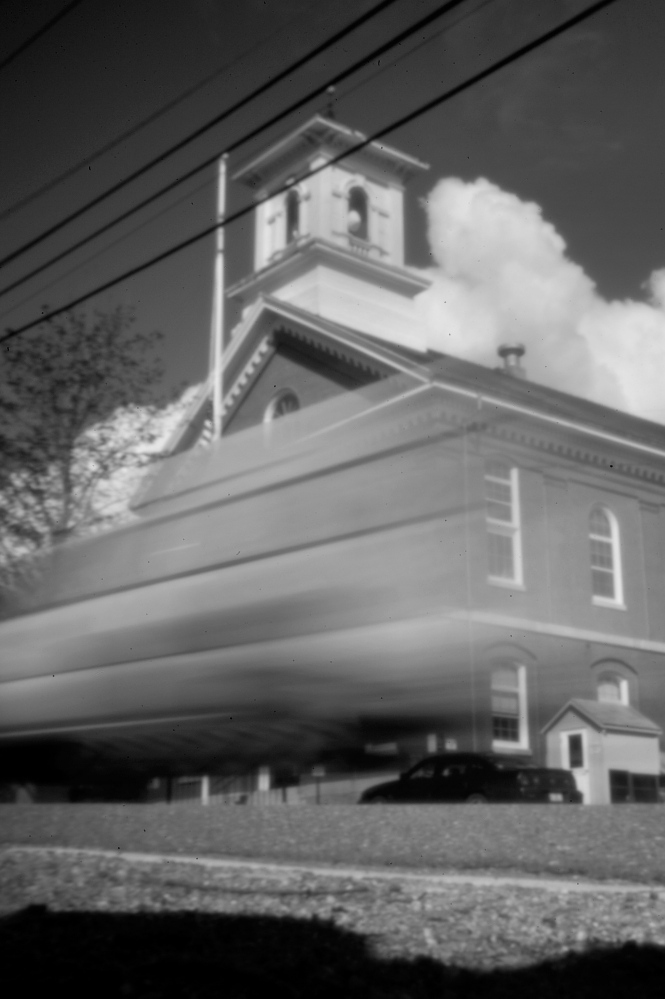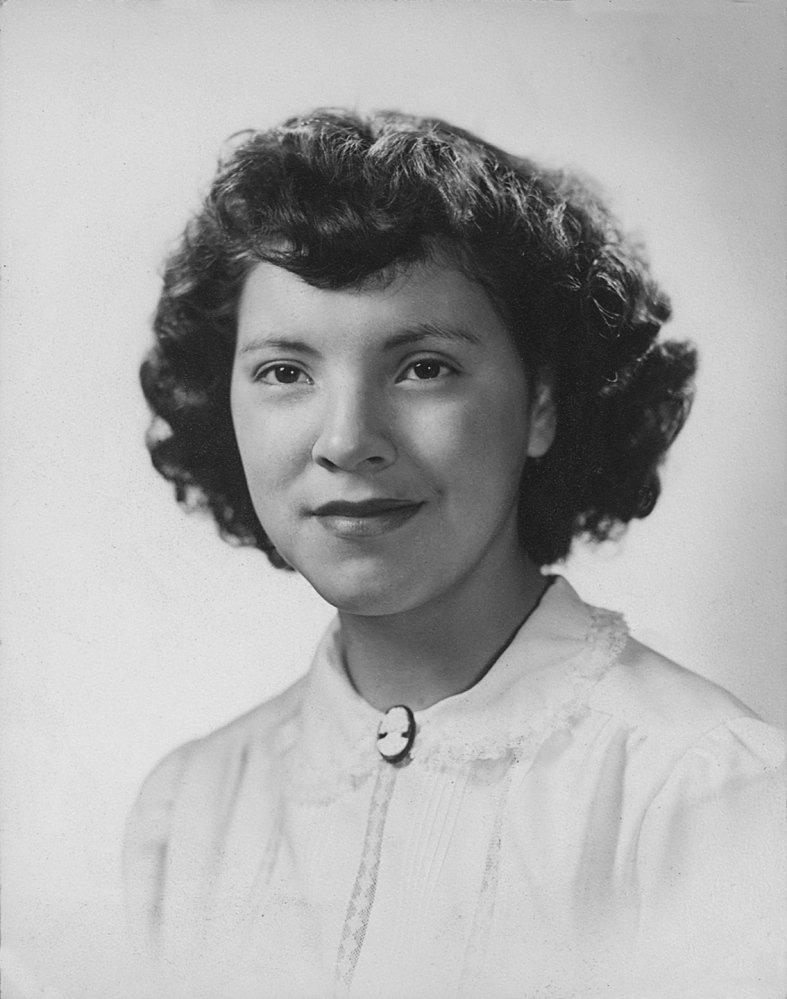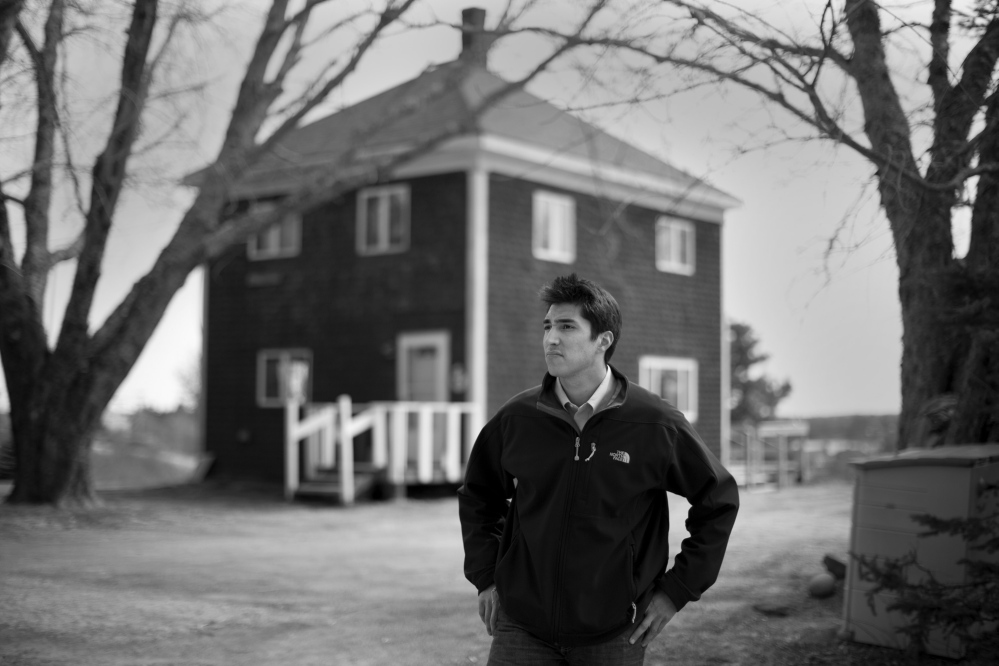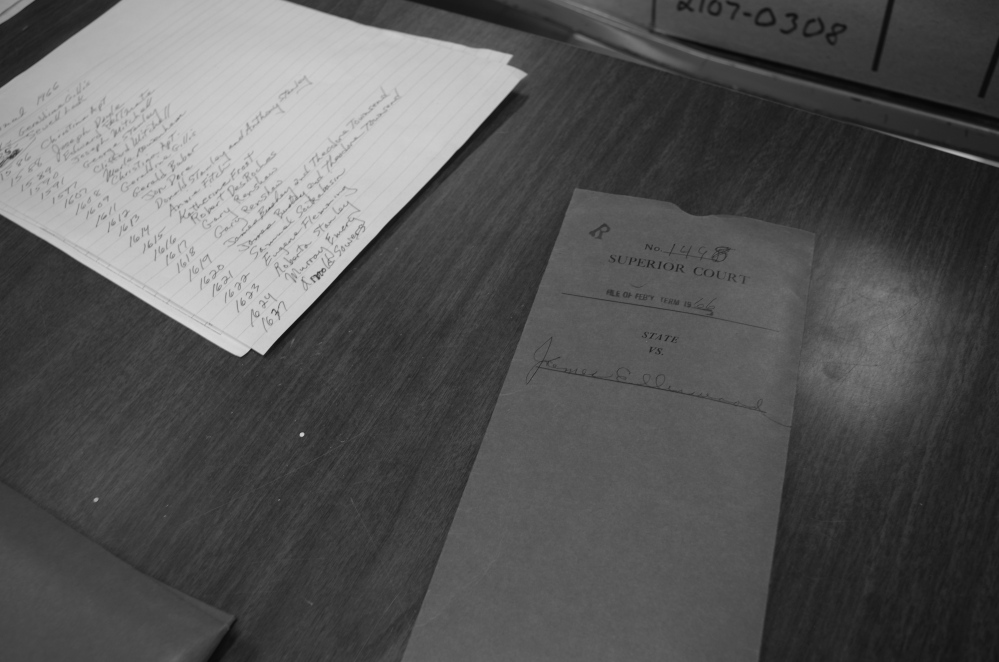
F
rom the Indians’ perspective, the trial of Massachusetts hunter James Ellinwood, who was charged with manslaughter in the beating death of Peter Francis, was a farce.
In a written account of the trial prepared for her children, Rita Altvater – whose husband, Christy, had been severely beaten by several of the five white hunters during the attacks – described a hostile scene.
As they entered the courtroom at the Washington County Superior Court in Machias, Peter Francis’ daughter, Lila Hinton, asked Rita Altvater to point out the hunters to her. Lila, 33, confronted them: “So you’re the five hunters that killed my father.”
“They said ‘yes’ and snickered,” Rita later recalled. During a recess one of them walked by and said, “A good Indian is a dead Indian.” Lila burst into tears.
On another occasion, Rita recounted, Peter’s wife, Isabelle, arrived late. “She stopped by the door and the usher said, ‘Sit down or leave.’ She said, ‘Excuse me.’ After this a white woman came in, the usher went and got her a chair.”
“We were beaten before we started,” Rita added.
Ellinwood, now 26 and the only one of the five hunters to be indicted, “appeared confident throughout the trial,” the Press Herald reported from the courtroom.
By the second day of the trial, the Indians were alarmed at what County Attorney Francis Brown was not asking them, and aired their concerns to William Williamson, the Press Herald reporter covering the trial.
The slain man’s niece, Deanna Francis, now 18, expressed surprise that she hadn’t been asked to testify that the hunters had offered her money to accompany them, as she had been before a grand jury three weeks earlier. John Nicholas, Rita’s brother, started to relate the conversations he’d heard at the Altvater home, but Brown cut him off to ask what time he thought he’d left there.
The prosecution also failed to introduce into evidence the splinter that had broken off the two-by-four – the presumed murder weapon – because it would have required recalling a witness and would have been “too expensive.”
Williamson reported their concerns in a story March 3. The reporter was then summoned to the offices of the Press Herald’s attorney, according to the Indians’ legal representative at the time, Don Gellers, and ordered to write only about the court proceedings themselves. Although his series of articles on the Nov. 14, 1965, killing would receive an award from The Associated Press, Williamson would soon resign from the paper as a result of the interference, Gellers and Rita Altvater both later asserted.
“He quit the paper because they really wouldn’t let him report what was happening,” says the reporter’s son, Barry Williamson. “He had a strong sense of injustice, and that case fell right into the pocket of that.”

A
t one point during the trial, Lila Hinton found herself face to face with Romolo Capobianco, whom Rita Altvater described as being the only hunter reticent about their misdeeds. In a letter to her children, Rita claimed Capobianco told the slain man’s daughter: “I’m sorry that all this had to happen.”
“He said he would talk with her and tell her about it, but for now … he had to stick by them,” Rita, who died in 1994, wrote in the letter, which a family member unsealed and read for the first time in late 2013, hours before allowing a Press Herald reporter to read it.
Reached at his home in Billerica, Massachusetts, recently, Capobianco was asked about the case. At first, he said: “Jesus, I don’t know. … That was a long time ago – it’s all been forgotten.” He then said he himself had forgotten the events, and then claimed not to remember whom he was hunting with or what had happened on account of his advanced years. “There’s someone at the door,” he said after a few minutes. “I have to go.”
Another hunter, Daniel Frobese, said he had been a “blackout drinker” in those days and had only fragmentary memories of the day. The only thing he remembered about the final fight outside the Altvater home was that he had tried to get out of the car to retrieve one of William Robbins’ loafers, and had been pulled back in by his friends.
Asked if, in the aftermath of the fight, any of his friends had said who dealt the fatal blows to the back of Peter Francis’ head, Frobese said he still knew the other three men who were still alive – Robbins died in 2009 – and then said he had to go. Frobese did not respond to follow-up calls.
Ellinwood, who lives at least part of the year in Texas, could not be contacted. Hugh O’Neill, who lives in southern New Hampshire, did not respond to telephone messages.
Christy and Rita’s youngest child, Kirk, the only witness to Ellinwood’s fight with Peter, was put on the stand on his ninth birthday. Family members say he was humiliated for making syntax errors in English, his second language.
The hunters denied they propositioned anyone and claimed they had beaten the Indians in self-defense.
Ellinwood claimed he merely “stiff-armed” Peter once, contradicting multiple statements he had made to police on the night of the slaying that he had punched the 59-year-old at least twice. The hunters claimed Peter and Christy had come at them with “clubs.”

T
heir version of events could not account for Peter Francis’ fatal wounds: blunt force blows to the temple and the back of the head, the latter powerful enough to have detached an extensive area of his scalp from his skull. Together the blows caused an extensive – and fatal – brain hemorrhage. The attending physician and pathologist testified these were consistent with a blow from a two-by-four. Bruises on his eye and hand suggested lesser blows.
The defense had earlier suggested there had been a drunken brawl. The pathologist’s report showed Peter’s blood alcohol level was vanishingly small, meaning he drank very little or possibly nothing at all.
Defense attorney Francis Day of Bangor suggested maybe Christy had hit Peter with the two-by-four, even though the two were close friends.
The all-white jury found Ellinwood not guilty.
The crowd jumped up in applause. “They were literally clapping and cheering when Ellinwood and those guys were freed,” Deanna recalled in an interview with filmmaker Ben Levine before her death in 2010. (Levine’s documentary is still in production.) “I mean it was just – I mean, in here” – she pointed to her heart – “carrying that all these years.”
“Uncle George was devastated,” Christy’s daughter Lisa Bassett recalls. “Our lives were destroyed.”

C
hristy Altvater was never the same after the beating, family members say. He hanged himself in his basement in 1971.
For the rest of his life, Kirk Altvater, Christy’s son, suffered from panic attacks that would leave him doubled over, hyperventilating. He developed a stutter, and his hands would shake. He killed himself in 1979. He was 21.
“There has been no justice, and irreparable harm has been done to my family,” says Peter Francis’ 27-year-old great-grandson, Michael-Corey Francis Hinton, an Indian law attorney at Akin Gump, one of the country’s most prominent law firms. “The damage is done, and it’s still affecting people, generations of my family, the Altvaters, and others in the community.
“This is the fire that burns within me,” he says, adding that his great-grandfather’s slaying and its aftermath influenced his career choice. “There will be justice done.”
His father, Peter Francis’ grandson Randy Hinton, agrees. “The tragedy of all this isn’t just the murder, it’s all the fallout and all the collateral injustice and pain and anger that revolves around that night,” he says. “Justice was never served, and those guys got away with murder.”
Although it was perhaps the most high-profile case of the era, the files for the case were purged before being transferred from Machias to the Maine State Archives. Conspicuously – and possibly uniquely – among the criminal cases of that era, even the formal judgment has not survived. All that remains are three pieces of paper: two random motions and the one-page form recording the verdict.
The U.S. Department of Justice has been reviewing the case, and the U.S. Attorney for the District of Maine, Thomas E. Delahanty II, says his office would likely need further evidence in order to proceed, despite the recent discovery of the long-lost transcript of the grand jury proceedings in the courthouse attic. It is also unclear if the case would fall under federal jurisdiction, as only some of the events of Nov. 14, 1965, took place within the boundaries of the Pleasant Point reservation.
Back in 1965, the only legal champion the Passamaquoddy had was Don Gellers, the one who had blown the whistle on the Francis murder and who continuously challenged the state’s handling of this and other cases.
Gellers didn’t know it yet, but he was about to be taken out of the picture himself.
Colin Woodard can be contacted at 791-6317 or at:
cwoodard@pressherald.com
Coming tomorrow:
Don Gellers makes friends – and enemies
Send questions/comments to the editors.





